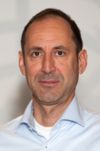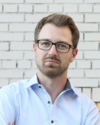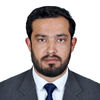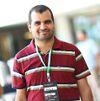Webinar on Powering Humanitarian Facilities : Dialogue on Implementation Models
How can humanitarian agencies move from procure and provide to buying energy as a service? This webinar will shed light on the different models for powering humanitarian facilities with renewable energy. Two case studies will highlight how renewable energy is used to power a humanitarian hub managed by IOM in South Sudan, and focus on the challenges and lessons learnt from ICRC’s net metering program in Pakistan. UNDP will then share their approach to building local capacity when implementing solar solutions for humanitarian facilities.
Presentation
Q&A
Speakers
Naseer Ahmed, ICRC Pakistan Naseer Ahmed, certified project and facilities management professional having masters in international Relations along with 14 years of experience in administrative, security and facilities management with the additional role of trainer for passive security measures like fire-fighting, office safety, hygiene standards within the developmental sector. Five years’ experience of sustainable development program for energy savings, alternative energy, Garbage recycling and water savings. Moreover, also worked in Malaysia and Mozambique Africa for Premises Administration support mission. Overall work experience entails, proactive planning, designing projects, project management, designing and constructing new office premises. Furthermore, having specialities also in events management, active and passive security, staff development and other administrative procedures required to run the office environment.

Gerald Demeules, UNDP Gerald has 30 years of experience in ICT and green energy with technical and humanitarian organizations. Since 2010, he is the UNDP Chief of the Country Offices ICT Advisory Services based in Copenhagen. His team leads the implementation of Smart UN Facilities consisting of 4 pillars: Energy and eMobility; ICT Infrastructure and Business solutions; Security; and Internet of Things.
Gerald joined the UN in 1998 as the Project Manager of the Global Communications Infrastructure (GCI) of the Comprehensive Nuclear-Test-Ban Treaty Organization - CTBTO. In 2007, he was appointed to the Chief of ICT Services for the UN Mission in Liberia. He led the “Delivery as One” initiative in collaboration with the UN country teams, establishing and developing unified common ICT services. Moreover, Gerald was a co-chair of the UN-Development Group (UNDG) ICT Reference Group, the UN inter-agency committee coordinating ICT collaboration and harmonization between all UN Agencies, funds and programmes.
Gerald started his career as a research associate (1988-89) at the Centre de recherche industriel du Québec (CRIQ) . He served as an Officer in the Canadian Armed Forces (1989-95), as the Chief of ICT Services and Operations Officer across Canada, Israel/Syria (1992) and Ex-Yugoslavia (1995) and the Head of National Command and Control Information Strategic Systems (NCCIS) from (1995-98).
Gerald holds a Bachelor in Mechanical Engineering from the Royal Military College of Canada (1982-87) and a Master in Applied Science of Automation and Networks from the École Polytechnique de Montreal (1987-89).

Paul Quigley Paul Quigley is a specialist consultant on energy in Humanitarian settings and has extensive experience working with UN agencies in humanitarian response, both on the ground and at HQ level. He works to develop sustainable energy solutions for effective humanitarian response through increased use of renewable energy technologies, mainstreaming energy as a cross-cutting issue and strengthening collaboration with private sector and energy partners. He worked for 15 years in energy and engineering in the private sector (over 250projects) before completing a masters in Environmental Resource Management and transitioning to energy in the humanitarian and development sectors. Paul works at inter-agency level, with private sector, humanitarian and development actors and across sectors to promote cooperation and communication towards creating innovative, cost effective ways to improve access to sustainable energy for all. He has worked on the design, implementation and operation of multiple renewable energy projects in humanitarian settings across Africa and Asia, including large scale solar installations in the Middle East.

Mads Uhlin Hansen, Kube Energy Mads Uhlin Hansen is the CEO of Kube Energy, a Norwegian renewable energy company dedicated to transitioning international organisations from diesel generators to solar power. Prior to establishing Kube, Mads worked on humanitarian response, first as a donor with the Norwegian Ministry of Foreign Affairs, and later from the United Nations Office for the Coordination of Humanitarian Affairs. He has spent much of his work in field locations and has been based in Burundi, Sudan and Sierra Leone. Today Mads is mostly focused on developing solar systems to power humanitarian operations in South Sudan, Kenya and Somalia. Mads has a Bachelor in Economics from the Norwegian University of Technology and Science and a Master in Political Economics from the University of Stellenbosch.

Mohammad Omar Patan, IOM South Sudan In over ten years of work experience, Omar has developed strong project management skills ultimately leading to holding overtime accountability for the design, implementation and execution of complex electrical power grid projects in both infrastructure and emergency contexts in Afghanistan and South Sudan.
His most recent engagement has been to, considering the concept of green environment and consistency of power generation & reducing electrical power generation cost, transform existing diesel power plants into hybrid, predominantly, photovoltaic systems in Humanitarian Hubs and IOM offices in South Sudan.
He has a bachelor’s degree in Electrical and Electronics Engineering and further, hold a MSc in Project Management. He possess extensive knowledge of power generation from both renewable and diesel sources and power distribution systems and their utilised components
Additionally, he is able to demonstrate a skillset that includes evolved ability to analyse and evaluate the demands of customers and, reciprocally, to tailor the design of large-scale infrastructure projects such as hybrid (solar and diesel) power plants and systems.
Resources
- Final Report - Workshop on Electricity for Humanitarian Agencies.pdf
- The Humanitarian Hub in Malakal, South Sudan Goes Green
Organizers





















